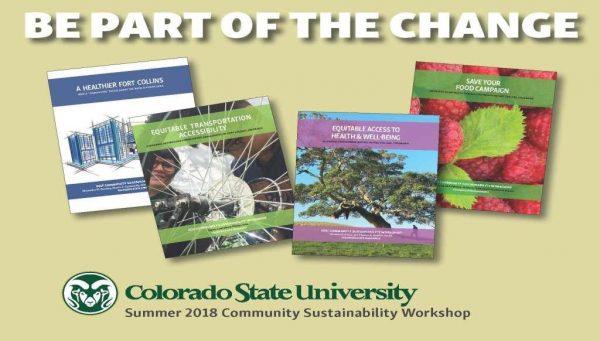Want to help solve real community issues related to sustainability, learn communication strategies appropriate for different situations, meet a three-credit All-University Core Curriculum (AUCC) requirement for composition — CO150 or CO300 — and also get three sustainability credits?
Be a 2018 Summer Community Sustainability Fellow! Get six credits in eight weeks: CO150 or CO300 and GES180A3.
Students need to enroll in either CO150 or CO300 and the 100-level sustainability course, (first register for GES and then CO, which will require an override). We’ll meet during the second 8-week summer course (starting June 11) from 1:30-3:30 M-F. Students will have the opportunity to partner with organizations that are dealing with real problems related to sustainability.
As part of the course, students will present their work to a community audience, as well as prepare research, reports, and a final project for their partner organizations (which will vary depending on the organization’s needs). At the same time, they will be learning valuable skills that help them be more effective at communicating with different audiences in different situations and understanding how to brainstorm and work on solutions for real-world problems.
For more information, contact Paul Hellmund, Paul.Hellmund@colostate.edu
In this video, Brittany, Jen, and Hayden — Fellows of the 2017 Summer Sustainability Workshop — share their perspectives on the innovative learning they experienced working on community sustainability projects at Colorado State University.
Instructor Kristie Yelinek from the Composition program teamed up with Paul Hellmund from the Sustainability department to offer a unique, 6-credit workshop for students in Summer 2017. The team was joined by second-year Masters student [and English department communications intern] Katie Haggstrom as the graduate teaching intern.
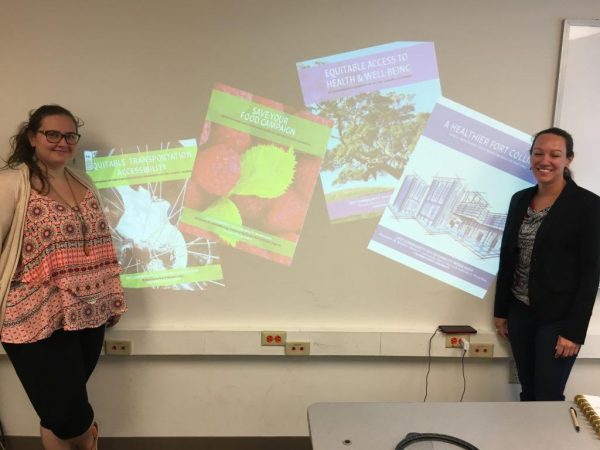
Students from both CSU and CSU’s Bridge Scholars program were brought together for “an innovative offering that integrates the contents of two Colorado State university undergraduate courses into one real-world, problem-solving workshop focused on finding practical and sustainable solutions to community problems.”
Students were divided into four teams and assigned a Fort Collins organization to collaborate with. The partners included:
- CSU One Health Institute
- Fort Collins Planning Department
- Bike Fort Collins
- Fort Collins Environmental Services Department
Each team worked with their organization to tackle an issue in Fort Collins. All of the projects focused on enhancing sustainability in the community, along with tackling issues within minority groups, particularly Spanish speaking populations, lower income areas and off-campus CSU students.
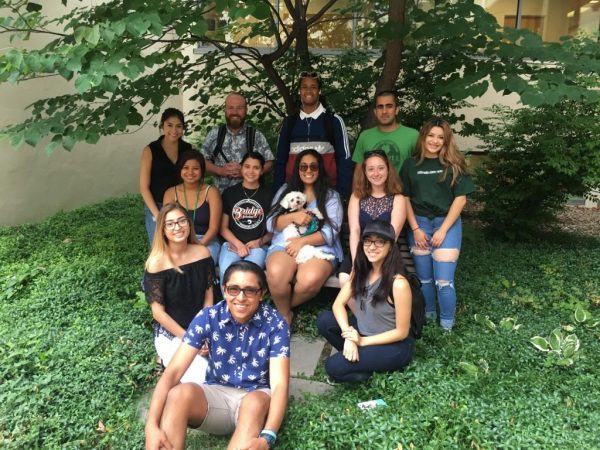
Through this experience, students learned professional skills, like working with clients, writing proposals, sending professional emails, and performing community studies. These projects were grounded in the composition curriculum, giving the students a specific audience and project to explore the more abstract hierarchy of rhetorical elements familiar to composition studies, including a look at audience, purpose, and focus.
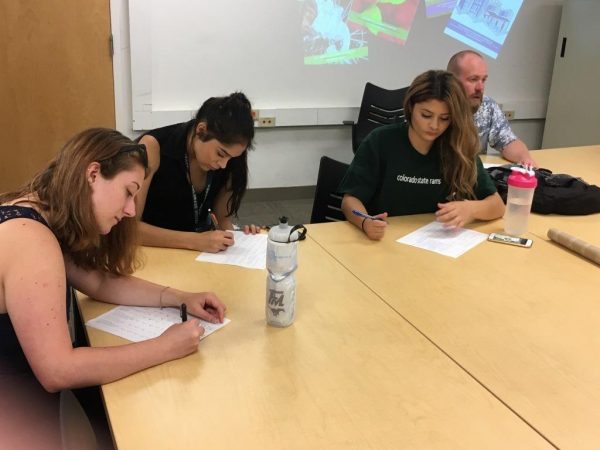
On July 20th, the students presented their projects. Attendees included directors from the English and Sustainability departments, other CSU staff and faculty, and members from the Fort Collins organizations.
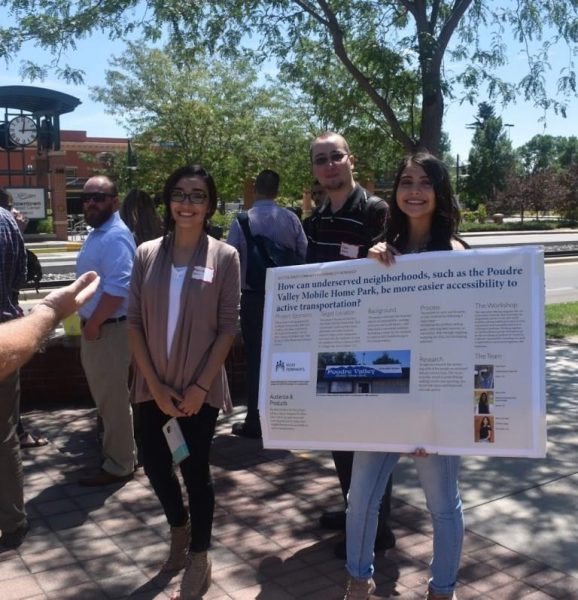
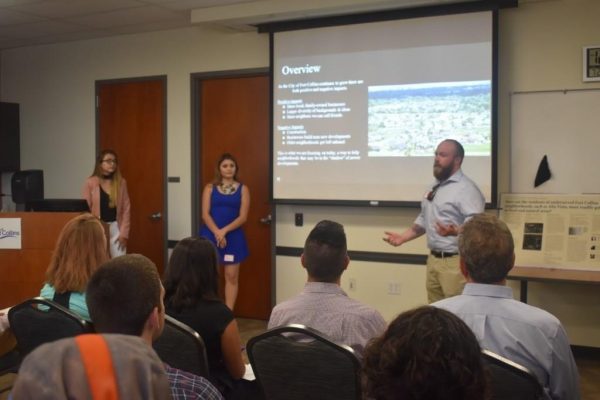
A student reflected that “the presentation had to be geared toward an audience with little to no knowledge on the topic so we used terms that were easy to understand but still showed the severity of the problem. In the final report, we went into great detail using more [professional and shared] verbiage which is what the clients want to see.”
At the end of the course, the four teams constructed a final project report for their clients which have been printed and bound to mirror a professional report.
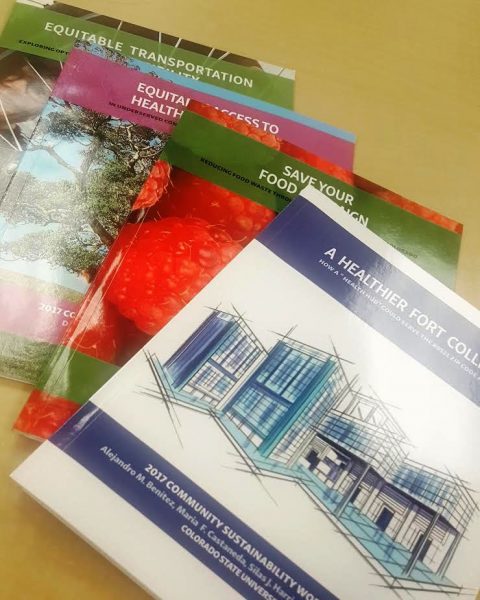
Quotes from students
“Instead of the class being separated by teachers and students, we all helped each other improve our work.”
“Beyond the typical traditional classroom setting, this class was specifically designed for students to pave their own paths towards success.”
“I further improved how to target specific audiences and aim my writing to grasp the readers and make them feel connected. I plan to continue developing my writing and focus on learning how to understand audiences in my future project.”
“This project makes an incredible impact in the community of Fort Collins and should be praised upon for being one of the few courses that does something meaningful that has instant results.”
“This class has made me understand…that the community of CSU is helping the community [and]…I can convince other people of the CSU community to join any organization and this will allow them to get involved as an active member of the community.”
“[D]eveloping a proposal that listed possible outcomes, solutions, and alternatives towards, neighborhood accessibility established a sense of credibility and research done in order to be able to take action toward the project.”
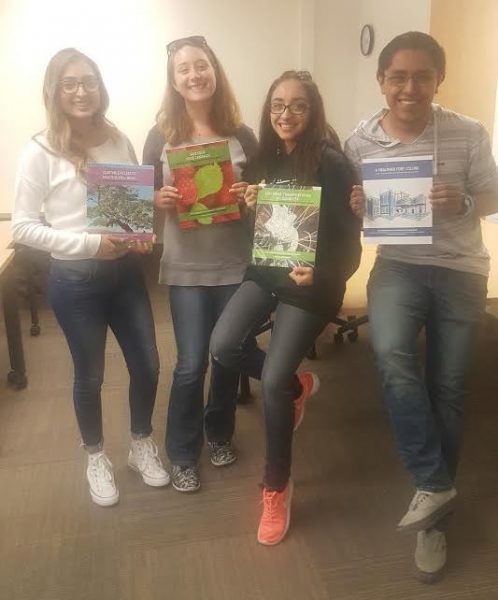
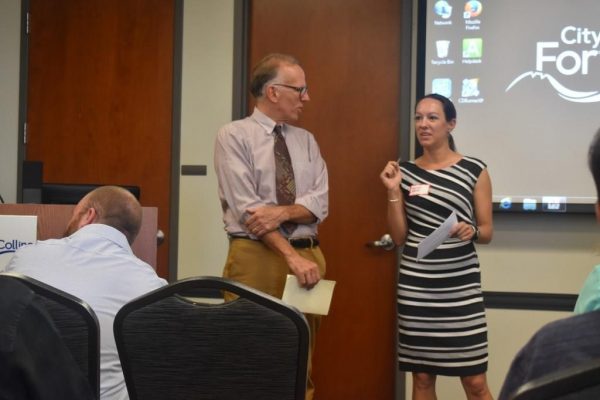
Paul Hellmund, Sustainability Instructor
As a sustainability instructor, what was the best part of combining a Sustainability course with a Composition course?
The two courses were such a natural fit, combining learning, doing, and communication. Also, it’s a special pleasure to work with students when they are the most knowledgeable about something (in this case their projects) and instructors can help them as coaches.
What surprised you the most about the students in your courses?
I had to remind myself that most of the workshop participants had just graduated from high school a mere two or three months earlier! They dug into their projects with tremendous maturity.
What was the most challenging part of creating an integrated, 6-credit workshop?
Integrating the content of the two courses made a lot of sense and went really smoothly. The major challenge was in accomplishing all that we did in just eight weeks. There was no slack time.
Is there anything else you would like to share about this course?
This workshop approach works really well in engaging students (and teachers!) in developing meaningful solutions to real community problems. In this way, learning and providing a community service happen simultaneously and naturally.
Kristie Yelinek, CO150/300 Instructor
As a composition instructor, what was the best part of combining a Sustainability course with a Composition course?
We’ve worked with other course themes in CO150, so it’s always interesting to learn more about a particular topic and/or discipline. Sustainability touches on so many other disciplines and areas/topics, so I can apply a lot of what I learned about sustainability into my other CO150 classes when it’s applicable for our current course theme. Having another instructor who was knowledge about the discipline and the conventions of writing in that discipline was valuable.
What surprised you the most about the students in your courses?
There were a lot of things that surprised me, but probably their drive to do well was the most surprising. We asked a lot of them and they met every challenge and excelled in what they did. They also brought such different backgrounds and experiences to the class, which gave each group a different perspective on their project.
What was the most challenging part of creating an integrated, 6-credit workshop?
It’s always difficult teaching a course for the first time, but in this case, we were also combining two different teaching styles and backgrounds. It was a challenge, but it was also interesting to see how someone else approaches work in the classroom.
Is there anything else you would like to share about this course?
It was a lot of work, but definitely worth all of the hard word to see the final projects that students created and see them be proud of the work that they did.
To learn more about the work these CSU students have been doing, or to see their reports, or to learn more about the Community Sustainability Workshop being offered Summer 2018, feel free to reach out to any of the faculty members:
Kristie Yelinek, Kristie.Yelinek@colostate.edu
Paul Hellmund, Paul.Hellmund@colostate.edu
Katie Haggstrom, kphaggstrom@gmail.com
- Source feature article: Students partner with city, county to advance sustainability efforts
